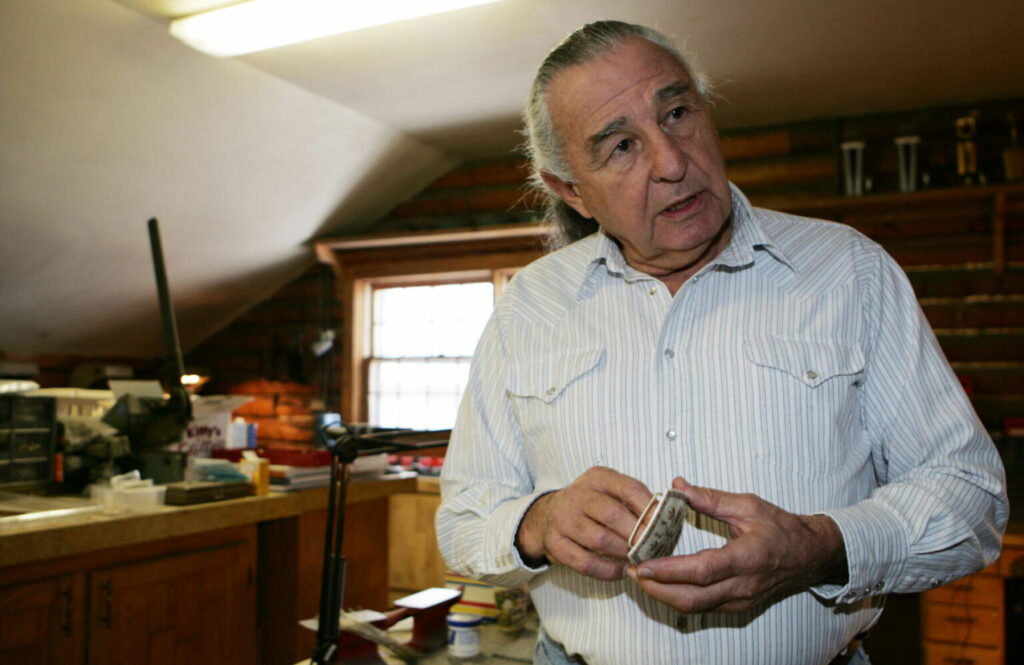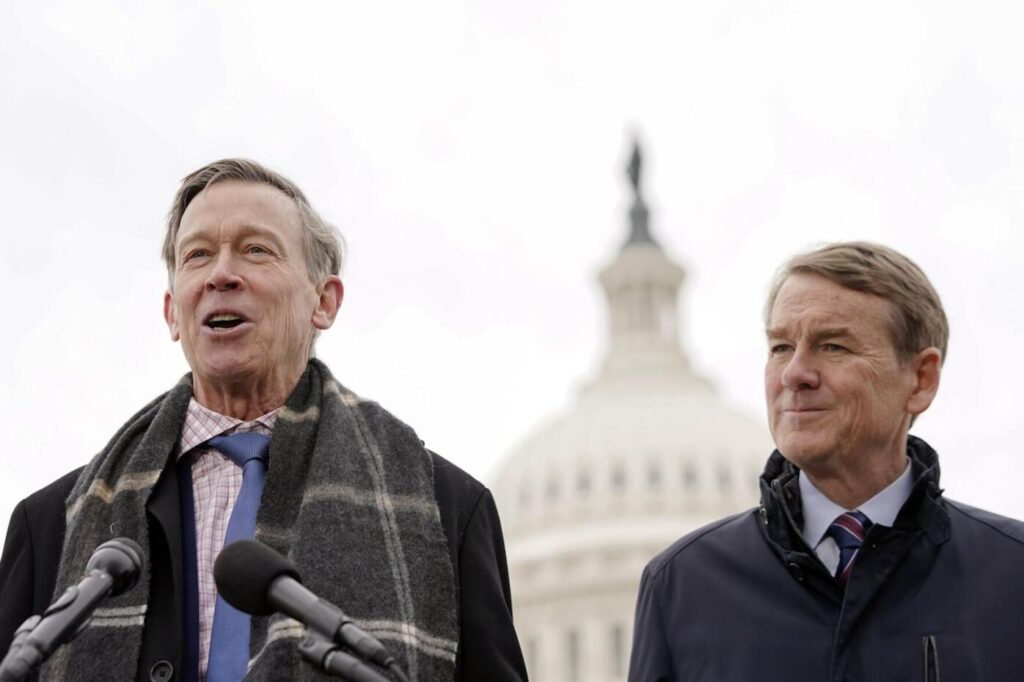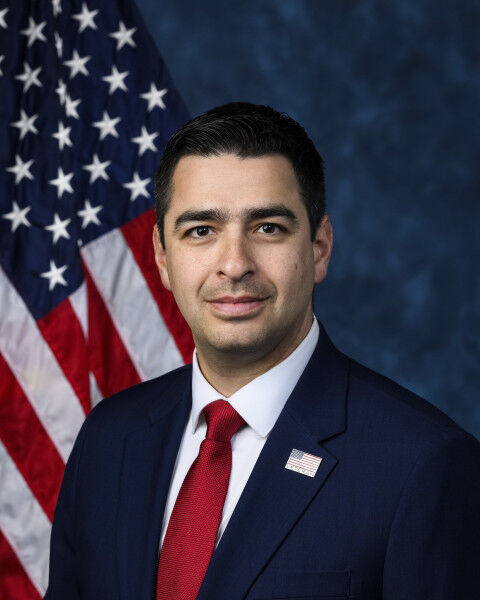Highlight reel: Colorado’s wild and woolly 2016 election season
Symbolic of the divisiveness of our politics, many Coloradans will look back at the 2016 election with violent contempt, reflecting on a political year that saw the rise of President-elect Donald Trump, while others will reminisce with sublime glee over a cycle where voters bucked the political establishment.
In a year full of tectonic shifts on the national political landscape, Colorado had its share of drama and surprises, though voters sent back many familiar faces to serve in Congress and at the state Capitol.
Election Day problems
A 29-minute computer glitch prompted the Colorado Democratic Party to ask a judge to extend voting by two hours.
The judge denied the request and the polls closed at 7 p.m. as scheduled. The statewide computer glitch had affected same-day voter registration, caused some voters to cast provisional ballots and some county clerks were unable to process mail ballots.
Darryl Glenn’s tough campaign
Voters sent every incumbent federal lawmaker back to Washington D.C. Not so in the state Legislature where – even in the midst of turnover due to term limits – Republicans held on to majority control of the Senate with a one seat lead while the Democratic Party built on its control of the state House, gaining three seats.
After U.S. Sen. Michael Bennet won re-election by a slight 1.6 percent margin in 2010, grassroots Republicans saw an opportunity in El Paso County Commissioner Darryl Glenn’s campaign to take the seat. Glenn picked up a surprising but decisive primary election victory in a crowded field to clinch the Republican Party nomination for U.S. Senate, but his campaign was an uphill battle.
Glenn’s campaign was marred by questions and conflicting explanations about a 1983 misdemeanor assault charge, flip-flopping stances on Donald Trump (a behavior he certainly was not alone in) and joining the U.S. Senate race at a significant financial disadvantage.
Ahead of the primaries, financial reports had Bennet raising $1.65 million, 10 times that of any Republican challengers, bringing his war chest to $5.7 million. Glenn would eventually raise more than Bennet in the third quarter (the July 1 through Sept. 30 filing period) receiving more than $2.8 million to Bennet’s $2.2 million, but the incumbent outraised him in every other filing period over the course of the election cycle.
Bennet won easily, though still with a narrower margin than many pundits anticipated, with 49 percent of the vote.
‘I’m on the ballot’
The GOP’s race to nominate a challenger for U.S. Senator Michael Bennet began with controversy when revelations emerged that forged signatures appeared on U.S. Senate candidate and former state lawmaker Jon Keyser’s petitions to qualify for the Republican primary.
The discrepancies came to light after liberal group ProgressNow Colorado discovered signatures from a voter, who supposedly signed petitions for two different U.S. Senate candidates, that didn’t match. It was later determined that 34 signatures were forgeries on Keyser’s petition.
An interview with Denver7’s Marshall Zelinger garnered national attention after Keyser seemed to threaten the reporter with his dog. Keyser later had what the Washington Post characterized as a “Macro Rubio moment” when he responded to every question about the forged signatures with the seemingly rehearsed one-liner, “I’m on the ballot.”
A signature collector, Maureen Marie Moss, was later identified by investigators as forging the signatures, charged and ultimately plead guilty to two charges, according to Denver7. Despite the invalid signatures, Keyser still appeared on the primary ballot.
The slow death of ColoradoCare
In early August, a study claimed a proposed ballot initiative, which would create a state-run, single-payer health care system coined ColoradoCare, wouldn’t be able to cover its costs, 9News reported.
Amendment 69, which would have provided every Coloradan with health care, replacing most private health care insurance, was to raise $25 billion a year for health care costs through a 10 percent payroll tax, co-pays and state and federal monies, but the study conducted by Colorado Health Institute claimed the program couldn’t cover its costs.
The study said ColoradoCare would have to cut benefits, raise taxes and reduce payments to physicians and hospitals to realize financial solvency. Voters ultimately overwhelming rejected ColoradoCare, with nearly 80 percent voting no.
Gov. John Hickenlooper and the liberal group ProgressNow Colorado came out against the amendment, while U.S. Senator Bernie Sanders rallied on behalf of ColoradoCare in a less-than-usual chasm between Democratic Party factions.
Coffman defeats Carroll
After defeating Morgan Carroll in what he called “an epic battle,” Mike Coffman took the stage at the Doubletree Hotel in the Denver Tech Center to celebrate his victory, but in lieu of a cheers, he fielded scorn and chants of “Trump” and “who did you vote for?” from many of the attendees.
Coffman had criticized Trump, calling the president-elect’s lewd comments uncovered in an archived Access Hollywood tape “reckless” and his staff said he had written in Mike Pence, Trump’s pick for vice president, on his ballot.
Coffman bested Carroll by a wide margin, taking 51 percent to her 42 percent of the vote on election night.
Bachelor Ben runs, then doesn’t
In a story broken by The Colorado Statesman, Ben Higgins, star of the popular reality dating show the Bachelor, was reportedly eyeing a run for the House District 4 seat, represented by Democratic House Speaker Pro Tem Dan Pabon of Denver.
After sending Republican leaders a letter with details about his new show on Freeform, according to the Huffington Post, in which he would spread the message of “less government and more personal freedom to even more people,” he filed campaign paperwork on July 21.
He withdrew his candidacy the following day, citing unforeseen circumstances. Those unforseen circumstances turned out to by Disney ABC giving Higgins an ultimatum. It was his deal for the new show or running for political office – one or the other.
Pabon was looking at a potentially tough campaign cycle following a DUI arrest on St. Patrick’s Day, though he won handily with 78 percent of the vote.
Start of assembly season
For state Democrats, election season started with a tight assembly in Senate District 31 resulting in a three-way race with both emergency room doctor Steve Sherick and veteran lawmaker Rep. Lois Court winning enough votes to make it on the primary ballot in one of the most-watched legislative races in the state.
Workers’ rights advocate Erin Bennett, who decided not to run through the assemblies but by petition – in part because she said her supporters wouldn’t have been able to participate due to scheduling conflicts with work and family – submitted signatures to the secretary of state’s office to petition on to the ballot.
Court would eventually emerge as the winner with about 44 percent of the vote.
The candidates were vying to replace Sen. Pat Steadman, a Capitol heavyweight fixture, who was unable to run for re-election due to term limits.
State Republicans clash over RNC delegates
As the Republican National Convention approached, a group of Colorado Republicans took issue with the process used to select delegates at the state party convention in Colorado Springs.
Officials question state House candidate’s resume
In the runup to the Democratic primaries, officials called for Eric Nelson to drop out of the race for state House District 42 and resign from his seat on the Aurora School Board after allegations were leveled that he embellished parts of his resume including academic degrees and aspects of his military service.
A Colorado Statesman investigation first brought forth questions about Nelson’s background, revealing dozens of criminal charges spanning more than a decade and a resume featuring unsubstantiated claims including a history of representing himself as a retired Air Force captain, despite only serving eight weeks in the military.
Nelson refused to resign from the board at a June regular school board meeting, but he was later stripped of his role as secretary, removed from all organizations associated with the board and had his biography removed from the Aurora Public Schools website. He lost his election bid in the primary to opponent Dominique “Nikki” Jackson, who was endorsed by Democratic leaders.
Friendly fire: Primary season
When all the primary votes were tallied, prominent state Democrats like Rep. Angela Williams cruised to easy wins, sweeping all 91 precincts in Senate District 33 – garnering 82 percent of the vote – besting independent candidate Jon Biggerstaff.
In another key state Senate primary race, Rep. Rhonda Fields routed state Rep. Su Ryden with 74 percent of the vote, setting a general election challenge against Republican Sebastian Chunn and Libertarian candidate Michele Poague.
State Republicans watched as a big race for Colorado Springs’ Senate District 12 went to former Republican Rep. Bob Gardner as he defeated former military chaplain Rep. Gordon Klingenchmitt 62 to 38 percent – all in hopes of succeeding term-limited Senate President Bill Cadman.
And, in another southern Colorado key race, former state Rep. Larry Liston ousted Republican incumbent Janak Joshi in the House District 16 primary with 60 percent of the vote.
A ‘bullet straight to the head’
Dylan Seila Hopkins, 21 of Arvada, was arrested in mid-September in relation to a Facebook message sent to state Sen. Laura Woods threatening her and her family with a “bullet straight to the head.“
“I was stunned. I was shocked. I was appalled and then terrified,” Woods told The Colorado Statesman. “I’d never seen anything like it before.”
Investigators said they were also looking at a threatening electronic message from Hopkins directed toward Donald Trump.
Ballot questions abound
A ballot initiative that would have established a bipartisan commission tasked with drawing congressional and legislative district lines was killed after the Colorado Supreme Court found the measure asked too much of voters and violated the “single subject” rule, The Denver Post reported. The initiative’s supporters said it would diminish gerrymandering, but some Democrats said it would weaken minority voting.
After a July announcement that the campaign had already gathered 200,000 signatures, a vote via the November ballot on raising the minimum wage to $12 seemed imminent. Amendment 70, approved with 55 percent of the vote, raises the state minimum wage to $12 an hour by 2020, a boost from the state minimum wage of $8.31 and federal minimum wage of $7.25.
The campaign to put Amendment T, a measure to remove a reference to slavery from the state constitution, on the November ballot kicked off in late August. Written in 1876, the reference reads, “There shall never be in this state either slavery or involuntary servitude, except as a punishment for crime.” To the surprise of many, it was later narrowly defeated in the general election with 50 percent voting no.
Supporters of proposition 106, which would allow a terminally ill adult to take prescribed medication to end their life, turned in more than 150,000 petition signatures in early August to get it on the November ballot. The measure, which passed with nearly 65 percent of the vote, requires a person to be at least 18 years old, be terminally ill with less than six months to live and be able to self-administer the medication.
Two other initiatives made it onto the ballot, aimed at replacing Colorado’s party caucus system with an open primary one, allowing unaffiliated voters to participate. The two measures succeeded in the general election, creating a presidential primary in 2020 and allowing unaffiliated voters to participate in the party primary of their choosing. The primary issue was charged by some as the responsible party in the apple-cart tipping of state Rep. Tim Dore, who had supported the open primary idea in the General Assembly and later lost to his primary opponent, Republican Kimmi Lewis.
Also put to the voters was whether to tax tobacco products – which failed at the general ballot box – and make amending the state constitution harder (Amendment 71), a measure that was successful and added to the resumes of principle managers former state Sen. Greg Brophy and Summit County Commissioner (and former state lawmaker) Dan Gibbs.











